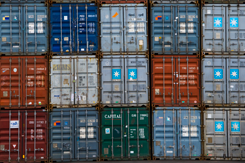Ses statuts sont fondés sur ceux de l'Académie royale de chirurgie (1731) et http://medicamentsen-ligne.com/ cialis de la Société royale de médecine (1776). L'Académie de médecine, de royale, devint impériale de 1851 à 1870, puis nationale à partir du 1er mars 1947. Elle sera en outre chargée de continuer les travaux de la Société royale de médecine et de l'Académie royale de chirurgie : elle s'occupera de tous les objets d'étude ou de recherches qui peuvent contribuer au progrès des différentes branches de l'art de guérir.
Great finds
- Non Gamstop Casinos
- Non Gamstop Casinos
- Non Gamstop Casinos
- Casinos Not On Gamstop
- UK Casinos Not On Gamstop
- Casino Non Aams Sicuri
- Siti Non Aams
- Non Gamstop Casinos UK
- Casino Not On Gamstop
- Non Gamstop Casino Sites UK
- Slots Not On Gamstop
- Non Gamstop Casinos
- UK Casino Not On Gamstop
- UK Casino Not On Gamstop Self-exclusion
- UK Casinos Not On Gamstop
- Best Non Gamstop Casinos
- Casino Sites Not On Gamstop
- Non Gamstop Casino Sites UK
- Meilleur Casino En Ligne France
- Casinos Not On Gamstop
- Best Betting Sites In UK 2025
- Meilleur Casino En Ligne France
- Casino Non Aams
- Casino Not On Gamstop
- Best Crypto Casino
- Top 10 Casino En Ligne Belgique
- Meilleur Site De Casino En Ligne Belgique
- Siti Non Aams
- ライブカジノ ルーレット
- 稼げるカジノアプリ
- ブック メーカー オッズ
- 토토사이트 추천
- плинко казино
- Nha Cai Den Tu Chau Au
- Meilleur Casino En Ligne France
- Site Casino En Ligne
- Meilleur Casino En Ligne
- 토토사이트 모음
- Casino Non Aams Sicuri
- Casino En Ligne Fiable
